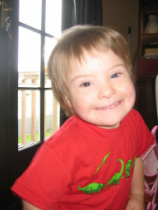Frequently Asked Questions
What is Applied Behavior Analysis?
Applied means to put to practical use. Behavior is the way in which an organism acts in response to a stimulus within its environment. Analysis is the process of separating something into its smaller elements, examining something. Therefore Applied Behavior Analysis is a scientific way of looking at the individual steps of a behavior and its function. By looking at each step we can begin to break the steps down into teachable parts. ABA looks at the environment of the child and takes into account the things within his/her environment that come before and after a target behavior. By identifying the function as well as the antecedents and consequences of a particular behavior the Behavior Analyst works to design an intervention to increase or decrease the behavior being targeted.
What is Autism?

Autism is defined by the Autism Society Of America (ASA) as a complex developmental disability that typically appears during the first three years of life. It is a disorder that affects an individuals ability to communicate and interact with others. Both children and adults with autism typically show difficulties in verbal and non-verbal communication, social interactions, and leisure or play activities.
My child doesn't have Autism, would ABA help with my child's communication/behavior needs?The principles of Applied Behavior Analysis function in all of our lives everyday. ABA/VB is great for any child who is simply in need of an environment tweaked to motivate them and reinforce their success. Whether your child needs help with communication, sleeping through the night, playing with peers, adding/subtracting, eating a variety of foods, brushing his own teeth, potty training, or walking next to you at the zoo, ABA/VB can help!
|
How old does my child have to be to receive services?
Many children receive a diagnosis of Autism or Developmental Delay around 18-24 months of age. Applied Behavior Analysis(ABA) is a scientific approach that facilitates acquisition/ learning and is tailored to each individual child's needs. Therefore children as young as 18 months of age can benefit from an ABA/VB program. Parent's are encouraged to begin services as soon as a delay is suspected. Some red flags present themselves even earlier than 18 months. If this is the case with your child, give us a call and we will tell you about our special programs created with your younger child in mind.
What is a typical session like?
Every session will be different. Some sessions include community outings to assist in behaviors that occur at the grocery store, the mall, a restaurant, or the playground. Still others might take place in a child's home, our clinic, school/daycare, church, synagogue, or friend's birthday party. No matter the location the goal is to increase language and learning while decreasing any behaviors that keep the child from learning and interacting with the environment around him/her.
What types of behaviors are targeted during a typical session?
Each Thrive program is designed by a masters level Board Certified Behavior Analyst (BCBA). The BCBA tailors the program to your child's specific needs. Since behavior is defined as any interaction with the environment, all sorts of behaviors will occur in a typical session. When looking at acquisition, the BCBA will choose targets across all verbal operants including; receptive language, expressive language including your child's ability to request what he/she wants, as well as discuss his favorite things when they are not present. Other targets will include self help skills during eating, dressing, and toileting, as well as social skills when interacting with friends, family, and teachers. In addition to these behaviors your child may have behaviors that impede learning and social interaction. If such behaviors exist, his/her program will have goals to decrease such behaviors (hitting, biting, scratching, throwing objects, self injurious behaviors etc...) as well as goals to increase replacement behaviors.
I know my child needs ABA Therapy But I dont think our insurance will cover it.
If you determine that your insurance provider does not cover ABA/VB therapy do not fret. Many of our client's have received grant and or scholarship monies to cover all or a portion of their ABA/VB services. Click here to see the list of available grants from Non- Profits across the United States. The list is not exhaustive and no guarantee is made by Thrive Behavioral Services, LLC that such entities will or will not provide grants or scholarships for your child's therapy. The list we retain on file is comprised of information shared from current or previous clients and online sources on this subject.



